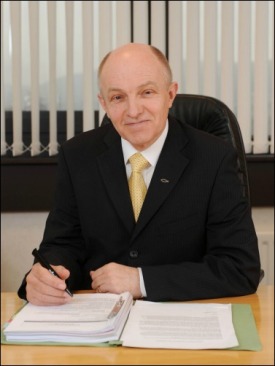Dealing with the legacy of the past
So it goes on, dealing with the past. It seems we are destined to live a ground-hog existence when we try to address our legacy issues. But when does the past stop and the present begin? Does it stop in 1998? Or does the past inhabit our present and, in that sense, is the past never truly gone?

We can’t stop remembering, that’s part of the human condition. Forgiving might move some of us on, but it neither diminishes the pain nor eradicates the event. Memory plays a huge part in our formation and, as much of our recall is community or family based, it passes through a number of analytical social filters before it becomes received or accepted history. Memory does, however, play tricks and, as time moves on, some facts and elements of the past fade. This is a normal process and neither means we are creating a past nor reinterpreting history to our own ends.
So we need to accept we are formed by the remembering of others, even our “enemies”, as well as by our own memory. Memory is not a linear process and, as John Paul Lederach reminds us, we constantly move between the past and the present and through this create new memories which transcend the years.
“Every act of memory contains imagination and every act of imagination an embedded memory. This more fully describes the human dilemma posed by the different temporal orientations we simultaneously possess, where we live in the past, the present and an imagined future all at the same time. We have been poor to address and embrace this simultaneity in peace processes. The politics of peace processes prefer pragmatics over creativity, expediency over honesty, and blame over dignity. We find it hard to live with the ambiguity formed by the murky windows we all peer through, which we assume are accurate and clear. They are not. We peer into past, present and future through a glass lit dimly. Strategic peace building requires a both/and approach toward the past and future. Recently, I suggested the challenge of walking from war to peace requires that we re-imagine the past and remember the future. I wonder in a place half a world away how this rings to you in Northern Ireland?”
We now have a generation of young people born in the year of the first ceasefire, 1994, who are no longer teen-agers. And those born in the year in which we signed the Belfast agreement are now finishing 12 years of school, during which they have learned about a past which we still contest, probably reflecting on “my past” rather than “our past”.
For all of us, the past is more subjective than objective but, though elements of it are factually disputed, it is a shared experience. It is complex, and it can be toxic. The past might fade with time, but its legacy remains.
Posted on 18 Aug 2014 by
Dr Michael Wardlow